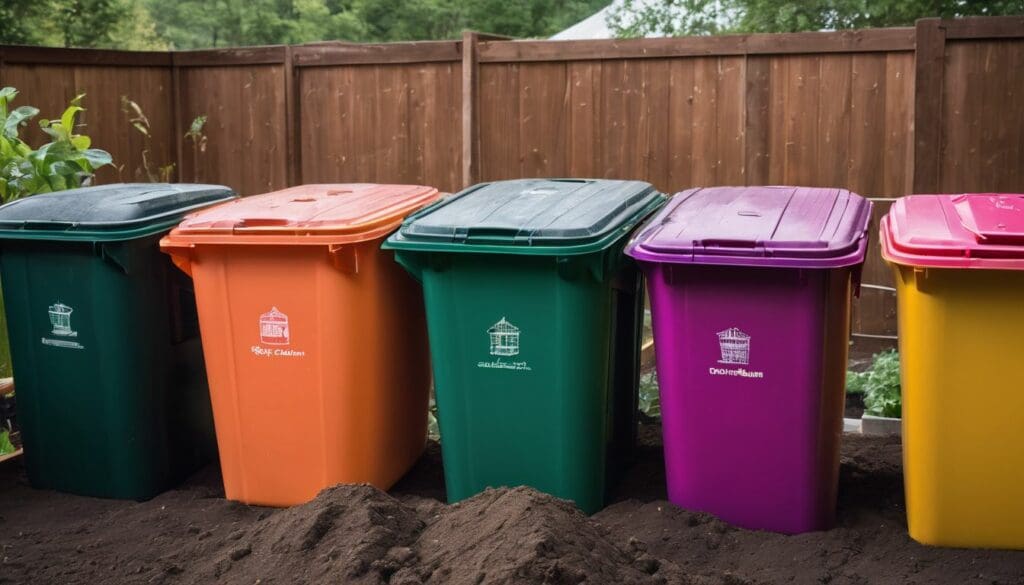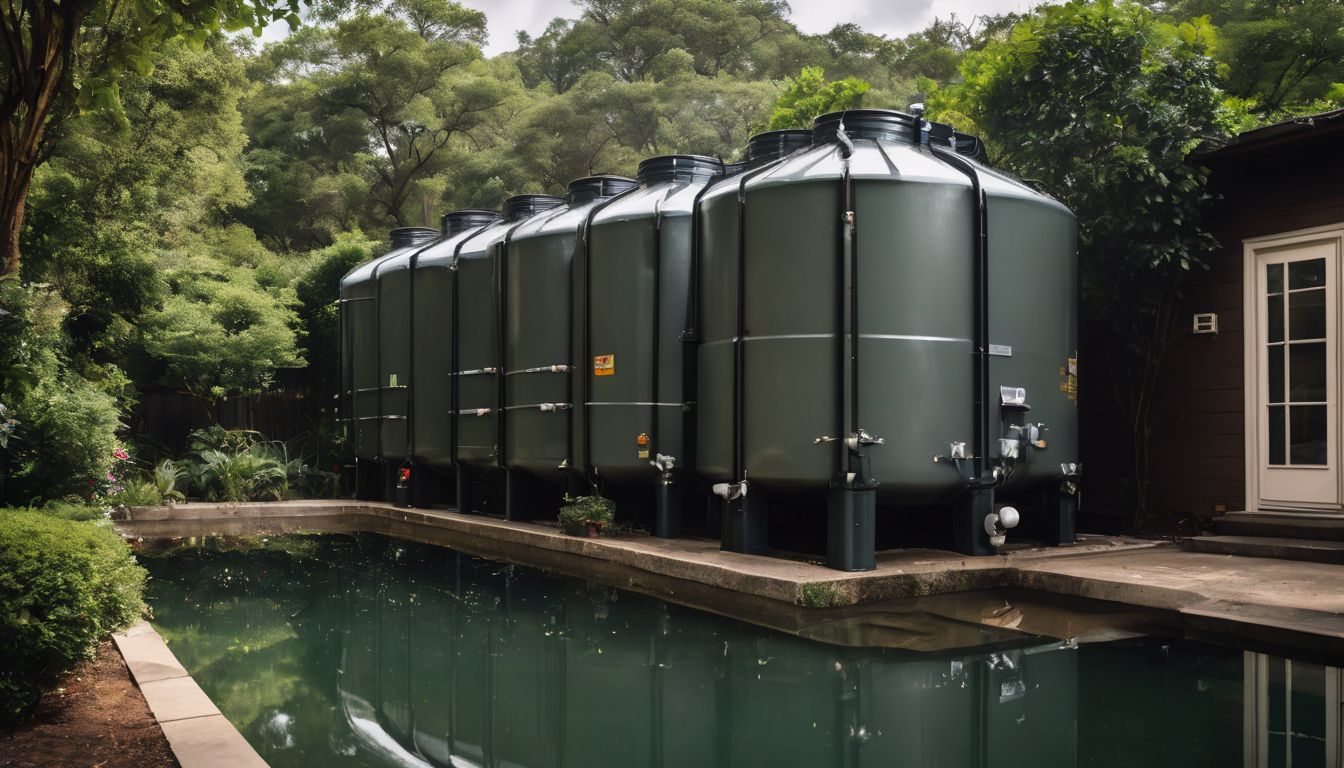Are you looking to make a real difference in your community’s environment? Recent studies show that local action can have a powerful impact on global sustainability. This blog post will guide you through organising impactful environmental awareness workshops, equipping your community with the knowledge and tools for positive change.
Let’s create a greener future together!
Key Takeaways
- Start by setting clear goals for your workshop that address local environmental issues and provide relevant solutions. Identify a target audience and tailor the content to suit their interests, ensuring it is engaging and informative.
- Collaboration is key; reach out to experts such as university professionals, NGOs, or guest speakers who can offer diverse knowledge. Additionally, partner with local businesses to gain materials or sponsorship.
- Choose topics wisely—it’s important they resonate with attendees and inspire them to act. Consider local challenges like pollution control alongside global concerns like climate change for a comprehensive approach.
- Fundraising efforts are essential for securing the resources necessary for a successful workshop. Utilise government grants, crowd funding platforms or community partnerships as potential sources of support.
- Be creative in engaging your community; organise service projects like beach clean-ups or tree planting sessions which provide practical experiences in environmental stewardship while enhancing the natural surroundings.
Why Hold an Environmental Awareness Workshop?
Holding an environmental awareness workshop is essential to stay informed about local environmental issues, network with colleagues, share experiences and perspectives, and promote sustainable growth in communities.
Stay informed about local environmental issues
Learning about local environmental issues is crucial for staying on top of the challenges and changes in your area. Attend workshops and seminars to grasp the current state of affairs, including pollution levels, conservation efforts, and new sustainability projects.
Knowledge empowers you to make informed decisions and take meaningful action within your community.
Connecting with professionals at these events can spark collaborations that lead to innovative solutions for environmental problems. You’ll discover how networking fosters a united front to tackle ecological concerns.
With this foundation of understanding local issues, we can now look into networking opportunities that broaden our impact on environmental justice and stewardship.
Network and collaborate with colleagues
Engaging with colleagues in the environmental field can lead to impactful partnerships and shared knowledge, fostering a strong network of like-minded individuals. By collaborating with others, you can combine efforts, share resources, and amplify your impact.
This enables community leaders to work together on projects that promote sustainability and advocate for environmental justice. Encouraging community engagement within this network opens doors to new ideas and provides opportunities for innovation in environmental education and public awareness campaigns.
Enhancing collaboration through workshops creates a platform to exchange expertise on conservation strategies, empowering communities to take collective action towards preserving the environment.
Share experiences and gain new perspectives
Engage in meaningful discussions with like-minded individuals and expand your environmental knowledge. Exchange ideas, experiences, and success stories to broaden your perspective and approach to environmental challenges.
Participate actively in workshops, fostering a community of learning and collaboration that fuels sustainable growth and impactful change.
Open your mind to fresh insights by interacting with diverse perspectives at environmental awareness workshops. Join forces with others who share your passion for conservation, enriching your understanding of environmental issues while contributing to a shared vision for a healthier planet.
Let’s explore creative workshop ideas that promote active engagement within the community while broadening our horizons towards effective environmental stewardship.
Promote sustainable growth
To further the positive impact of sharing experiences and gaining new perspectives, environmental awareness workshops serve to promote sustainable growth in communities. By raising awareness about local environmental issues and fostering collaboration, these workshops encourage individuals to take active roles in promoting environmentally conscious practices.
This fosters a culture of sustainability that paves the way for long-term conservation efforts.
Encouraging community members to embrace sustainable living practices not only benefits the environment but also contributes to building resilient communities prepared for future challenges.
Planning for a Successful Workshop
Setting clear goals and objectives, identifying the target audience, choosing relevant topics, securing funding and resources, and selecting presenters/speakers are essential steps in planning a successful community environmental awareness workshop.
Read more to learn how to make your workshop a success!
Setting goals and objectives
When organising a community environmental awareness workshop, it is crucial to establish clear goals and objectives. This will provide direction for the event and help ensure that the desired outcomes are achieved.
Setting specific targets such as increasing participants’ knowledge about local environmental issues, fostering collaboration among attendees, and promoting sustainable growth can guide the planning process.
Identifying measurable objectives will also allow for assessment of the workshop’s success in meeting its intended purpose.
To effectively set goals and objectives, organisers should consider the target audience’s needs and interests. By tailoring the workshop content to address these factors, it increases engagement and relevance for participants.
Identifying target audience
To make your environmental awareness workshop successful, it’s vital to identify the right audience. Audience segmentation can help tailor content that resonates with specific groups.
For instance, university students might respond well to workshops on sustainable living and eco-friendly habits, while local businesses could benefit from sessions on implementing green practices in the workplace.
Understanding your target audience’s needs and interests will lead to a more engaging and impactful workshop experience.
Choosing relevant topics
Selecting the right topics for your community environmental awareness workshop is crucial to engaging and educating participants. Start by considering local environmental issues that are important to your target audience, focusing on subjects that directly impact their daily lives.
Topics could include sustainable living practices, waste management, pollution prevention, and conservation efforts in the community.
In addition to local concerns, consider broader environmental themes such as climate change, biodiversity loss, renewable energy sources, or the importance of protecting natural habitats.
Securing funding and resources
To ensure the success of your environmental awareness workshop, securing funding and resources is crucial. Start by researching potential sponsors, grants, or community partnerships that align with your workshop’s objectives and outcomes.
Engage with local businesses and organisations to secure financial support, in-kind donations, or venue space for the event. Additionally, utilise online crowdfunding platforms or seek out government funding opportunities to complement your budget.
By proactively seeking out these resources, you can create a well-supported and impactful environmental workshop.
Selecting presenters/speakers
When choosing presenters or speakers for your environmental awareness workshop, consider individuals with expertise in relevant topics such as sustainable growth, community organising basics, and environmental justice resources.
Look for those who can engage the audience with interactive presentations on seminar topics like lifelong environmental learning and sustainability awareness. Seek out knowledgeable experts from universities, non-governmental organisations, and local businesses who can provide valuable insights into environmental activism and grassroots organising.
Consider inviting professionals experienced in facilitating workshops or training sessions to ensure a dynamic and effective delivery of content. It’s important to connect with speakers who are passionate about promoting conservation efforts and have a track record of successful community outreach.
To secure engaging presenters for your workshop, reach out to potential speakers well in advance and clearly communicate the objectives of the event along with the role you envision for them.
Collaborate closely with these presenters to align their contributions with the goals of your workshop while also ensuring that they can effectively convey complex concepts related to employee environmental awareness training and tribal perspectives on environmental issues.
Types of Environmental Workshops
Training for communities and environmental justice specialists, EPA, CDC, and NIH resources, tribes and indigenous peoples, states, universities and non-governmental organisations.
Interested in learning more? Keep reading to discover creative workshop ideas!
Training for communities and environmental justice specialists
Communities and environmental justice specialists can benefit from specialised training on sustainable growth, grassroots organising, and environmental education programs. These workshops offer valuable insight into local environmental issues and provide a platform to collaborate with like-minded individuals.
Learning from experienced presenters in the field equips participants with the knowledge and skills needed to drive positive change within their communities.
Environmental justice workshops connect attendees with resources provided by organisations such as the EPA, CDC, NIH, tribes, indigenous peoples, universities, and non-governmental organisations.
EPA, CDC, and NIH resources
Accessing resources from the EPA, CDC, and NIH can significantly enhance the quality of your community environmental workshop. By utilising their data, research materials, and educational tools, you can provide participants with valuable insights into pressing environmental issues and health concerns.
These reputable organisations offer a wealth of information on topics such as air and water quality, disease prevention, and sustainable practices that can help empower communities to take meaningful action towards positive change.
As an organiser committed to promoting environmental awareness within your community, integrating these trusted resources into your workshops will enrich the content and contribute to a more impactful learning experience for all involved.
Tribes and indigenous peoples
Workshops dedicated to tribes and indigenous peoples focus on their unique relationship with the environment. Topics may include traditional knowledge of sustainable resource management, environmental conservation efforts within tribal communities, and strategies for preserving cultural ties to the land.
Engaging these communities in environmental awareness workshops fosters collaboration and understanding between different groups, promoting holistic approaches to conservation and sustainability.
Understanding a broader perspective on environmental issues enriches the discussions at community events while encouraging an inclusive approach towards environmental justice training.
States
States play a crucial role in environmental awareness by implementing policies, regulations, and initiatives to address local environmental issues. These efforts include promoting sustainable growth, conserving natural resources, and minimising pollution.
States also collaborate with non-governmental organisations and community groups to organise workshops and educational programmes on environmental topics relevant to their region. By leveraging the expertise of state agencies and partnering with local stakeholders, these workshops aim to raise awareness about pressing environmental concerns while fostering collaboration among environmentally conscious individuals.
To further enhance community engagement, states often tailor the content of these workshops to address specific regional challenges such as water conservation, air quality improvement, or habitat preservation.
Universities and non-governmental organisations
Transitioning from engaging with states to reaching out to universities and non-governmental organisations is a crucial step in promoting environmental awareness. Leveraging the expertise and resources of academic institutions, as well as the dedicated efforts of NGOs, can significantly enhance the impact of community workshops.
By collaborating with universities, valuable research insights and academic knowledge can be shared with workshop participants, enriching their understanding of local environmental issues and potential solutions.
Similarly, forming partnerships with non-governmental organisations allows for a more comprehensive approach to addressing sustainability challenges within communities. These proactive engagements facilitate meaningful connections that bolster grassroots environmental initiatives while fostering a sense of collective responsibility.
Universities offer access to specialised research on environmental justice topics such as sustainable growth strategies, creating an ideal platform for informed discussions during workshops.
Likewise, collaborating with NGOs opens opportunities for leveraging their experience in community engagement and advocacy work towards conservation efforts. Establishing these partnerships not only enhances the credibility of the workshops but also broadens their reach by tapping into diverse networks committed to preserving the environment.
Creative Workshop Ideas
Engage your community in environmental service projects, plant trees or gardens, host guest speakers, and collaborate with local businesses for a more impactful workshop experience.
Want to learn more about organising successful environmental awareness workshops? Keep reading!
Service projects (cleaning up beaches, community spaces, etc.)
Engage in service projects to make a tangible impact on the environment. Clean up beaches, parks, and other community spaces to foster a sense of environmental stewardship. By actively participating in these projects, individuals can contribute to the preservation of natural habitats and promote a cleaner, healthier environment for all.
By joining hands with local initiatives or organising your own events, you can inspire others and demonstrate the power of collective action. As environmentally conscious individuals supporting conservation efforts, taking part in service projects reinforces your commitment to sustainable practices while encouraging others to follow suit.
Planting trees or gardens
Communities can enhance their environmental impact by planting trees or gardens. Planting native species of trees and plants not only beautifies the area but also provides habitat for wildlife, reduces air pollution, and mitigates climate change.
Involving local residents in such initiatives fosters a sense of ownership and responsibility for the environment, promoting sustainable growth.
Engaging in tree-planting activities not only benefits the local environment but also brings the community together to work towards a common goal. Gardening workshops can educate individuals about sustainable practices while providing them with hands-on experience in nurturing green spaces within their communities.
Hosting guest speakers or educators
Bringing in guest speakers or educators can enrich your environmental workshop by providing diverse perspectives and expertise on relevant topics. These individuals can offer valuable insights, share real-world experiences, and inspire participants to take meaningful action towards environmental conservation.
Engaging with knowledgeable speakers or educators during the workshop can empower attendees to make informed decisions about sustainable practices and environmental justice. It also creates opportunities for networking and collaboration within the community.
Moving on from hosting guest speakers or educators, let’s delve into creative ideas for collaborating with local businesses or organisations to enhance the impact of your environmental awareness workshop.
Collaborating with local businesses or organisations
Partner with local businesses and organisations to bring valuable resources, knowledge, and support to your community environmental workshops. By collaborating with these entities, you can access funding, expertise, and a wider network of participants.
Engaging in partnerships also encourages broader community involvement and commitment to sustainable practices.
Connect with environmentally-minded businesses or organisations that share your passion for conservation efforts. Seek out potential collaborators who are committed to promoting green initiatives in the community by leveraging their resources and expertise.
Conclusion
In conclusion, organising community environmental awareness workshops is essential for educating and empowering individuals. These workshops enable participants to network, collaborate and share experiences while promoting sustainable growth.
They provide a platform for learning about local environmental issues and gaining new perspectives on conservation efforts. With careful planning and creative ideas, these workshops can effectively facilitate grassroots organising for the betterment of our environment.
FAQs
1. What are community environmental awareness workshops?
Community environmental awareness workshops are educational events that teach people about sustainable growth and how to protect our environment. They’re a key part of grassroots organising for a greener world.
2. How do I organise an environmental seminar?
To organise an environmental seminar, choose important topics, find experts to lead discussions, and invite the community to join and learn about environmental justice and sustainability.
3. Can you get a certificate from these workshops?
Yes, some environmental justice workshops offer certificates to recognise your understanding of the issues discussed and show you know how to help the environment in your local area.
4. What skills will I learn from workshop facilitation?
By facilitating a workshop, you’ll gain valuable skills in leading discussions on important topics like environmental justice and community education that can inspire action towards making positive changes.





